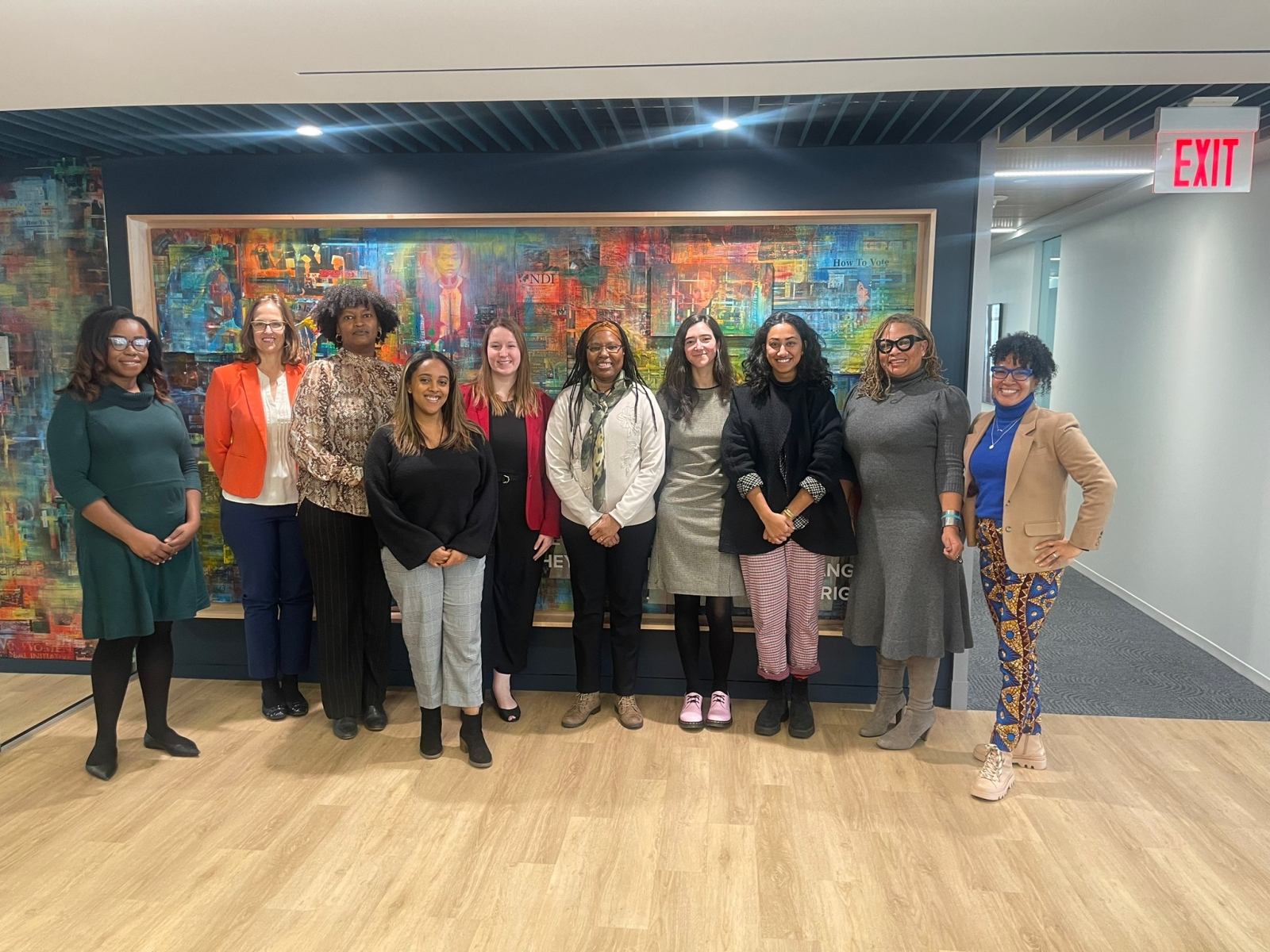
SHARE
It was a busy December in Washington D.C., as leaders from across the African continent attended the African Leaders Summit, and met with their American counterparts and diaspora communities. Days before the African Leaders Summit, the Kenya Diaspora Alliance - USA (KDA - USA), with support from the National Democratic Institute (NDI) and the U.S. Department of State, convened a post-election discussion with key figures from the diaspora community, including a candidate for local office and academicians; Kenyan-based human rights and democracy activists; and a woman MP. Organizations that were featured included Election Observation Group (ELOG - Kenya) and Amnesty International - Kenya. This event offered an opportunity to reflect on both the achievements and shortcomings of Kenya's 2022 election cycle.
Reflecting the need to mainstream diaspora participation in national development processes and reinforce ties with Kenyan democracy supporters, this event served as part of a series of conversations organized by KDA-USA to promote the inclusion of Kenyans in the democratic process. Kenyans — both in-country and in the diaspora community — voted in this year's election with the register of voters composed of 22,120,458, including 10,443 voters abroad. The August 9 elections culminated in a highly competitive race at the presidential level. Following involvement by the Supreme Court, the election ultimately resulted in a peaceful transfer of power, signifying a positive step in Kenya’s democratic consolidation. Twenty-nine women were elected to the National Assembly and 47 women were elected as county representatives – an increase from 23 in 2017. The total number of women elected to public office rose from 172 in 2017 to 202 in 2022, representing a 17.4% increase.
However, there were limits to positive trends, as voter turnout remained at low levels, particularly among minority and special interest groups. In addition, a total of 4.5 million registered voters opted out of receiving their voter cards for election day. Throughout this panel discussion, the diaspora participants recognized progress achieved in the Kenyan election process and also identified key areas of improvement going forward.
Spirited discussion among the attendees revealed three key areas of focus: challenges the diaspora face when engaging in the election via direct vote, the unique and landmark qualities of this recent election, and the need for the diaspora to push for an inclusive and sustainable strategy moving forward.
Given the diaspora's significant impact on Kenya’s development through remittances and investments, they naturally seek fair representation in parliament. This election included several diaspora candidates, bringing the collective perspective and skill sets from abroad back to their homes. However, attendees noted that mechanisms for the electoral inclusion of the diaspora community seemed to be an afterthought for the Independent Electoral and Boundaries Commission (IEBC), resulting in lower participation rates and fewer opportunities for the diaspora community to contribute their knowledge and perspectives.
Another important perspective shared was the need to bolster the voice of Kenya's youth. This election saw low rates of voter turnout among youth, partly due to disillusionment with the electoral system. Panelists noted that the solution for low youth engagement in elections cannot come from the same political system that stereotypes them in association with their ethnicity or socio-economic background. A deliberate attempt to better engage youth as voters and, more importantly, as candidates themselves will help transform political institutions to be more inclusive and representative of Kenya's large youth population.
Finally, discussion focused on women's access to campaign financing as well as their unique security challenges. Participants noted that culturally, most Kenyans are still struggling to accept women's readiness for leadership positions beyond the domestic sphere. For women attendees with first-hand experience in election campaigns, they underscored that the representation of women goes beyond the gendered aspect and includes representing people living with disabilities and vulnerable groups. They highlighted inequities confronted by women candidates, such as the fact that men have a 24-hour campaign period whereas women ostensibly only have a 12-hour campaign period due the perceived dangers of travel after dark. This gendered bias prohibits women from full and equal participation in the campaign period. Participants proposed the need for dedicated fundraising mechanisms, wherein funds would directly support the campaign efforts of women candidates, and provide additional security support for women on the campaign trail.
While the group recognized that this was a relatively peaceful election compared to 2007 and 2017, they also encouraged the international donor community to look beyond the absence of violence as a barometer for assessing the fairness and transparency of Kenyan elections. In discussion of the institutional reforms and changes in norms still needed over time, the panelists considered whether Kenyans suffer from "political amnesia" by repeatedly electing leaders with records of proven or suspected crimes.
In their concluding remarks, the diaspora and Kenyan-based civic activists shared a common understanding that more strategic work needs to be implemented with regard to the growing involvement of the diaspora transnationally. Consensus was reached that youth engagement should not solely focus on those back home but should also include youth in the diaspora. Community leaders identified this as a key point for collaboration moving forward. To better support women candidates in future elections, the group also considered the creation of a diaspora task force to improve women's access to finance and enhanced security. NDI and KDA look forward to continuing such discussions, as they are crucial to building bridges between stakeholders and the creation of systemic and locally-owned change.
Author: Mistire Kifle, Temporary Project Assistant, Southern and East Africa
###
NDI is a non-profit, non-partisan, non-governmental organization that works in partnership around the world to strengthen and safeguard democratic institutions, processes, norms and values to secure a better quality of life for all. NDI envisions a world where democracy and freedom prevail, with dignity for all.


